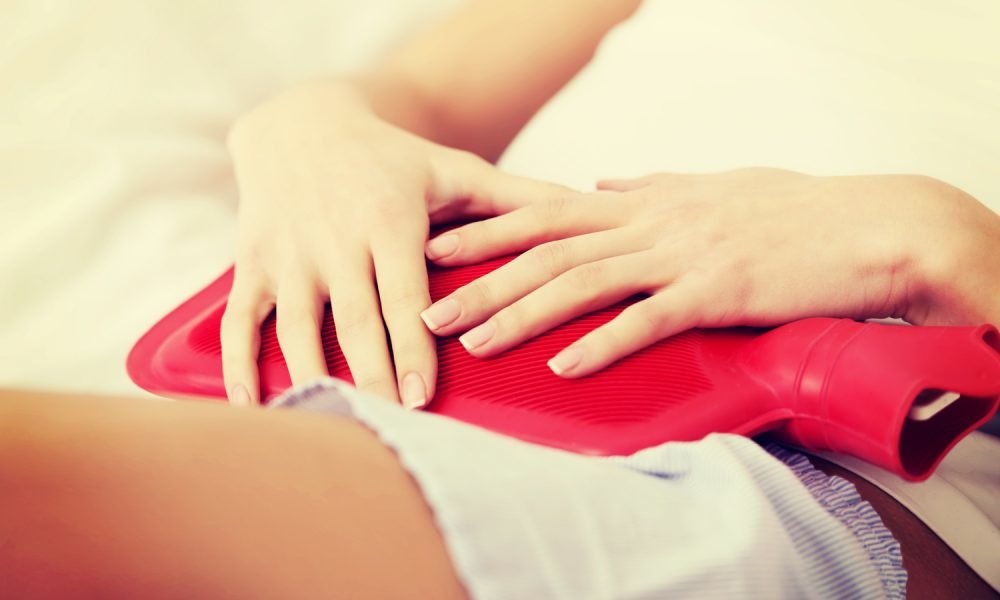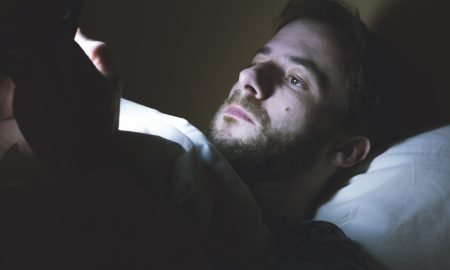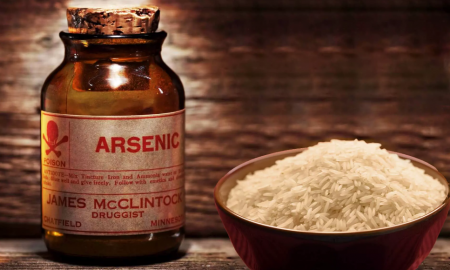
Are You At Risk Of Endometriosis Or Already Suffering From It? Here’s How You Can Prevent It!

Endometriosis is a painful disorder characterized by tissue that grows outside the uterus but acts like the lining of the uterus. This tissue can be found in many places, such as the fallopian tubes, ovaries, pelvic lining, and even in or around the bowels and bladder. Endometriosis, which can cause symptoms in females between the ages of 12 and 60, affects around 1 in 10 women and girls in the United States, many of whom remain undiagnosed.
The main symptom of endometriosis is pelvic pain typically associated with menstruation. This pain is atypical – worse than the cramping women normally feel while menstruating. Having endometriosis can be both physically and emotionally challenging. But fear not, as you can take steps to fight the pain associated with endometriosis and ensure the condition doesn’t hinder the activities of your daily life. Below are some of the ways you can ease the symptoms of your endometriosis.
Watch Your Diet

The consumption of the right foods may help provide some defense against endometriosis. In recent years, the role of diet in endometriosis has been examined, and it has been found to influence some of the processes linked to the disease, such as prostaglandin metabolism, inflammation, and estrogen activity.
Insecticides and pesticides that are ingested through certain foods are possible risk factors for endometriosis. Research has revealed a relationship between the development of endometriosis and diets that are low in fruits and vegetables and high in red meat. It has been suggested that higher consumption of green vegetables and fresh fruit reduces the risk of endometriosis by a whopping 40 percent, while a high intake of beef, ham, and other red meat increased relative risk by 80 to 100 percent.
Experts propose that the high fat content in red meats is responsible for the production of chemicals known as prostaglandins in the body, which may aid in the production of more estrogen. This causes excess endometrial tissue growth. Increasing your intake of fruits and vegetables and depleting your consumption of red meat could have a positive impact on your uterine health. Researchers have also discovered that the type of fat included in one’s diet may determine the level of an individual’s risk of endometriosis. Eating foods rich in omega-3 fatty acids, such as walnuts, flaxseeds, and salmon, may be helpful in combatting endometriosis.
Work out regularly

Out of fear of it causing more problems, people who experience endometroial pain often shy away from exercising, lacking the knowledge that regular workouts may decrease the pain and discomfort they experience.
Regular exercise may help those with endometriosis in various ways:
[otw_shortcode_unordered_list items=”5″ style=”with-icon list-style-7″ item_1_name=”reduces stress ” item_2_name=”decreases the production of estrogen” item_3_name=”encourages the circulation of blood to the body organs” item_4_name=”releases endorphins in the brain, which are essentially pain-relieving chemicals” item_5_name=”maintains nutrients and oxygen flow to all body systems”][/otw_shortcode_unordered_list]
Those who frequently engage in high-intensity physical activities such as running, biking, and swimming are about 75% less likely to experience endometriosis than women who do not participate in them. Low-intensity exercises, like yoga, may also help manage endometriosis. Yoga can strengthen and stretch your muscles, which can reduce stress and pelvic pain.
Manage your stress levels
The painful symptoms that accompany endometriosis can make an individual’s stress levels soar due to the impact they have on all aspects of one’s life. In a cyclical fashion, stress can be intensified by endometriosis, and endometriosis can be intensified by stress. Various relaxation techniques have been proven to manage stress levels. These techniques can help you increase your awareness of your body, focus on something more soothing, and deplete the activities of stress hormones. These techniques include:
[otw_shortcode_unordered_list items=”4″ style=”with-icon list-style-7″ item_1_name=”Autogenic training” item_2_name=”Progressive muscle relaxation” item_3_name=”Visualization” item_4_name=”Deep breathing”][/otw_shortcode_unordered_list]
Try to stick to all the relaxation techniques until you find the technique that best works for you. But be aware that finding this technique can take time and practice, so patience is key.
Consider medications

Ultimately, meeting up with your doctor is the best solution, as doctors are best suited to provide you with a list of treatment options for endometriosis while also outlining the risks and benefits of each. By meeting up with your doctor, you also reduce the risk of allergic reaction to new medication, as they will take into account your age, your symptoms, whether or not you want to become pregnant, and any treatments that you have had previously before prescribing drugs to you.
Over-the-counter pain relievers
In a bid to help suppress the pain that comes with endometriosis, your doctor may recommend that you try an over-the-counter pain reliever such as nonsteroidal anti-inflammatory drugs ibuprofen or naproxen.
Hormone therapy
Hormone therapy can help slow down endometrial tissue growth, prevent new tissue growth, and reduce or eliminate endometriosis-related discomfort.
Hormone therapies that your doctor may recommend include:
[otw_shortcode_unordered_list items=”4″ style=”with-icon list-style-7″ item_1_name=”Birth control pills, vaginal rings, and patches to regulate the hormones responsible for the buildup of endometrial tissue.” item_2_name=”Gonadotropin-releasing hormone agonists and antagonists to halt menstruation, block ovarian-stimulating hormone production, and reduce estrogen levels.” item_3_name=”A progestin-only contraceptive, contraceptive injection, or contraceptive implant to prevent menstrual periods and endometrial implant growth.” item_4_name=”Danazol to subdue the growth of the endometrium.”][/otw_shortcode_unordered_list]
It should, however, be noted that although all these hormone therapies are effective at treating endometriosis, they all have their own side effects. If none of these strategies help you manage your endometriosis symptoms, your doctor may recommend surgery. The approach you and your doctor choose to take will differ depending on your signs and symptoms, and whether or not you plan to become pregnant in the future.
It is important to be well aware of your alternatives and the prospective outcomes of each before agreeing to start any given treatment.
More in Health & Well-Being
-
`
Benetti Unveils their Largest Masterpiece: A Massive 351-foot Yacht!
The prestigious private Italian shipyard, Benetti, took the world by storm as it attempted to break their previous record by building...
June 28, 2025 -
`
How Insomnia Greatly Affects Your Mental Health
Living in a digital age where information is rampant and machines help us with our everyday work, enabling us to be...
June 28, 2025 -
`
Recall Alert! More Companies Recall Vegetables For Potential Listeria
Whether we want to lose weight or we just want to live a healthy lifestyle to prevent acquiring deadly diseases, we...
June 28, 2025 -
`
Experts Reveal Planned Indulgences are Good For Your Health
Everyone loves eating food. Aside from the fact that we need to eat food as a necessity for our body to...
June 28, 2025 -
`
Experts Reveal this Training Workout for Strength Training Beginners!
The thought of starting strength training may excite you, but the health experts say you need to prepare your body first...
June 26, 2025 -
`
A shocking fact about millennials
There is no doubt that a lot has changed between generation X and millennials. In fact, the differences are astonishing. In...
June 26, 2025 -
`
Life Changing Strategies That Can Improve Your Mental Health & Well-Being
Physical and mental health can be said to be two sides of the same coin. Improving physical health can do a...
June 26, 2025 -
`
Infamous Hollywood Diets – A List Of Celebrities’ Weird Diet Programs
The word ‘diet’ has become relatively popular among fitness trainers and trainees, and the better part of the world. The word...
June 26, 2025 -
`
Breaking Up with a Friend Is Always a Hard Thing to Do, but Here’s How You Do It
A romantic relationship is similar to a healthy friendship in the sense that both are a two-way street. These connections are...
June 26, 2025















You must be logged in to post a comment Login